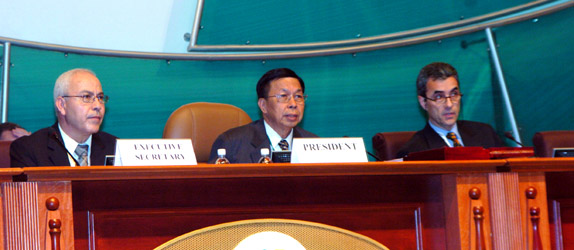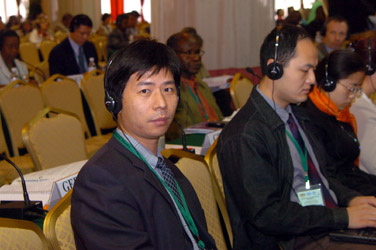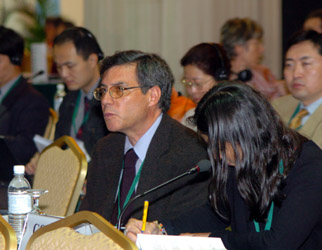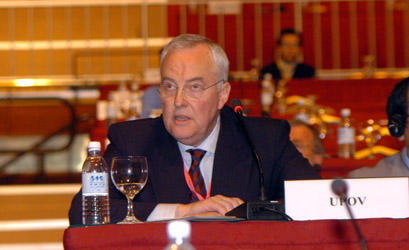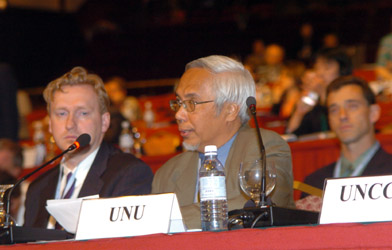Working Group I:
Mountain Biodiversity
|
|
|
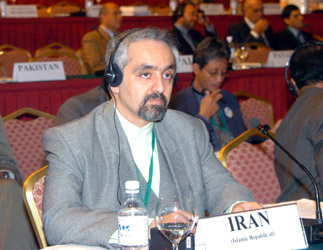
|
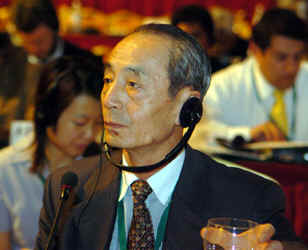
|
|
|
Asghar Mohammadi Fazel, Iran on
behalf of the ASIA AND THE PACIFIC GROUP, says COP-7 should highlight
mountains in the CBD Multi-Year Programme of Work and promote
harmonization of the mountain work programme with other thematic areas.
|
Cheng Weixue (China) notes that south-south and north-south
cooperation are both important for the implementation of the mountains
work programme.
|
|
|
|
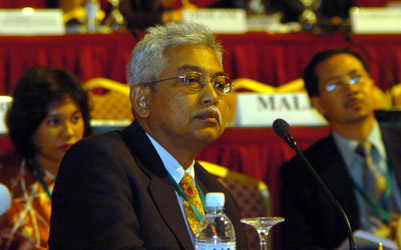
|
 |
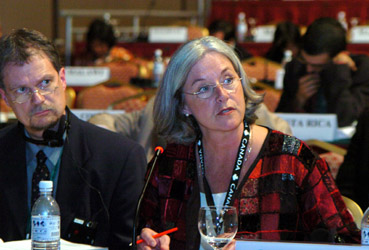 |
|
Captions from Left: Ibrahim Komoo
(Malaysia) expressed support for the proposed work programme on mountain biodiversity; Gershom
Gunyalli Onyango (Uganda) suggested that mountain
ecosystem conservation be integrated into poverty alleviation
programmes; Karen Brown (Canada) proposed adding references to indigenous communities in the work
programme.
|
|
Protected Areas: |
|
|
|
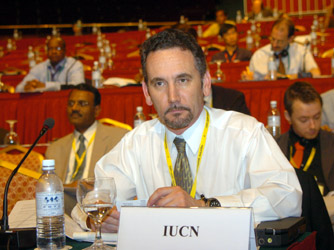
|
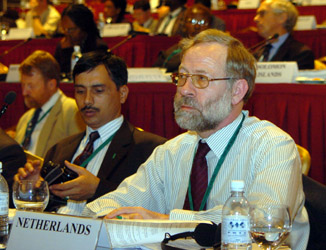
|
|
Elaborating on
the outcomes of the WPC, Peter Shadie (the IUCN) stressed the need for
national-level gap analyses, particularly regarding marine and
freshwater PAs.
|
Peter Bos (the Netherlands) supports other delegates regarding
the adoption of a concrete and realistic work programme on
protected areas including targets, outcomes and timetables and
building upon other CBD work programmes.
|
|
|
Working Group II: Transfer of technology and technology cooperation |
|
|
|
|
Xia Yingxzan (China), on behalf of the Asian Group, stressed the
importance of technology transfer for the implementation of the CBD's
objectives and called for more political will to provide support and
guidelines.
|
Fernando Casas (Colombia), on behalf of GRULAC, said that
technology transfer should bee seen as means for conservation and
sustainable use, as well as means for access and benefit sharing.
|
|
|
|
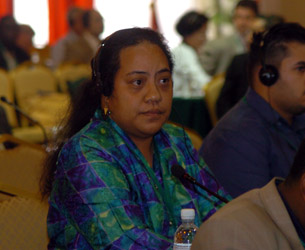
|
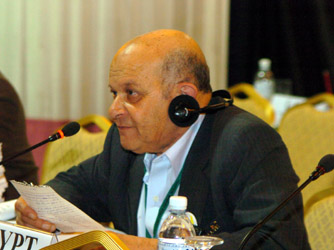
|
Tererei Abete-Reema, Kiribati on behalf of the Pacific SIDS
pointed to the lack of progress in technology transfer. |
Osama Mohamed El tayeb (Egypt) reminded delegates that
technology transfer has repercussions on other issues such as ABS and
traditional knowledge.
|
|
|
|
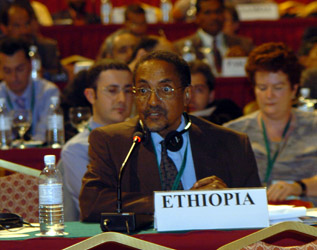
|
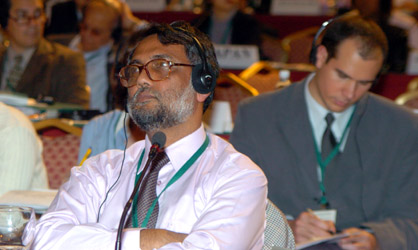 |
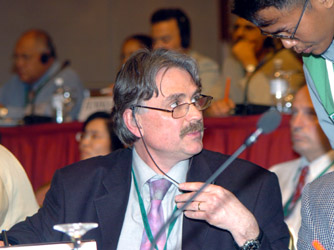 |
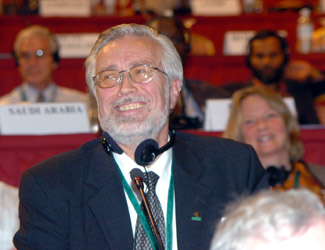 |
|
Ethiopia on behalf of the African Group, Ireland on behalf of the
EU, Bangladesh on behalf of the Asia and Pacific Group, the
Russian Federation, Switzerland and Norway asked for time to
consult on the draft decisions on invasive alien species and
requested that the documents be made available in all UN
languages.
Above photos from Left: Tewolde Berhan Egzhiaber (Ethiopia),
Mahfuzul Haque (Bangladesh), Robert Lamb (Switzerland) and Peter Schei (Norway)
|
|
|
|
Plenary:
Statements
|
|
|
|

Rolf Jördens (UPOV) said that soon more than 100 countries
will be bound by both the provisions of UPOV and the CBD and
advocated harmonization between the conventions.
|

A.H Zakri (UNU-IAS)
reported on its bio-diplomacy programme focusing on the use of
intellectual property rights, traditional knowledge and
bio-prospecting in Antarctica.
|
|
|
|
|
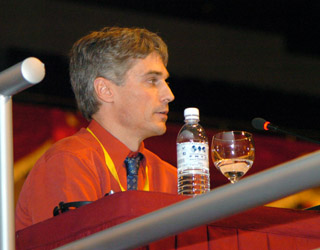
|

Allastair Sarre
(ITTO) (left)
said it was working on a network of conservation reserves covering over 11
million hectares, many of them trans-boundary. |
|
|
|

Listen to to the statements made by the delegates from (L-R) Shakeel
Bahti (WIPO) Maria
Fernanda Espinosa (IUCN) and Pekka
Patosaari (UNFF)
|
|
|
|
|
|

